U.S.-Flagged Tanker Collides with Cargo Ship in the North Sea
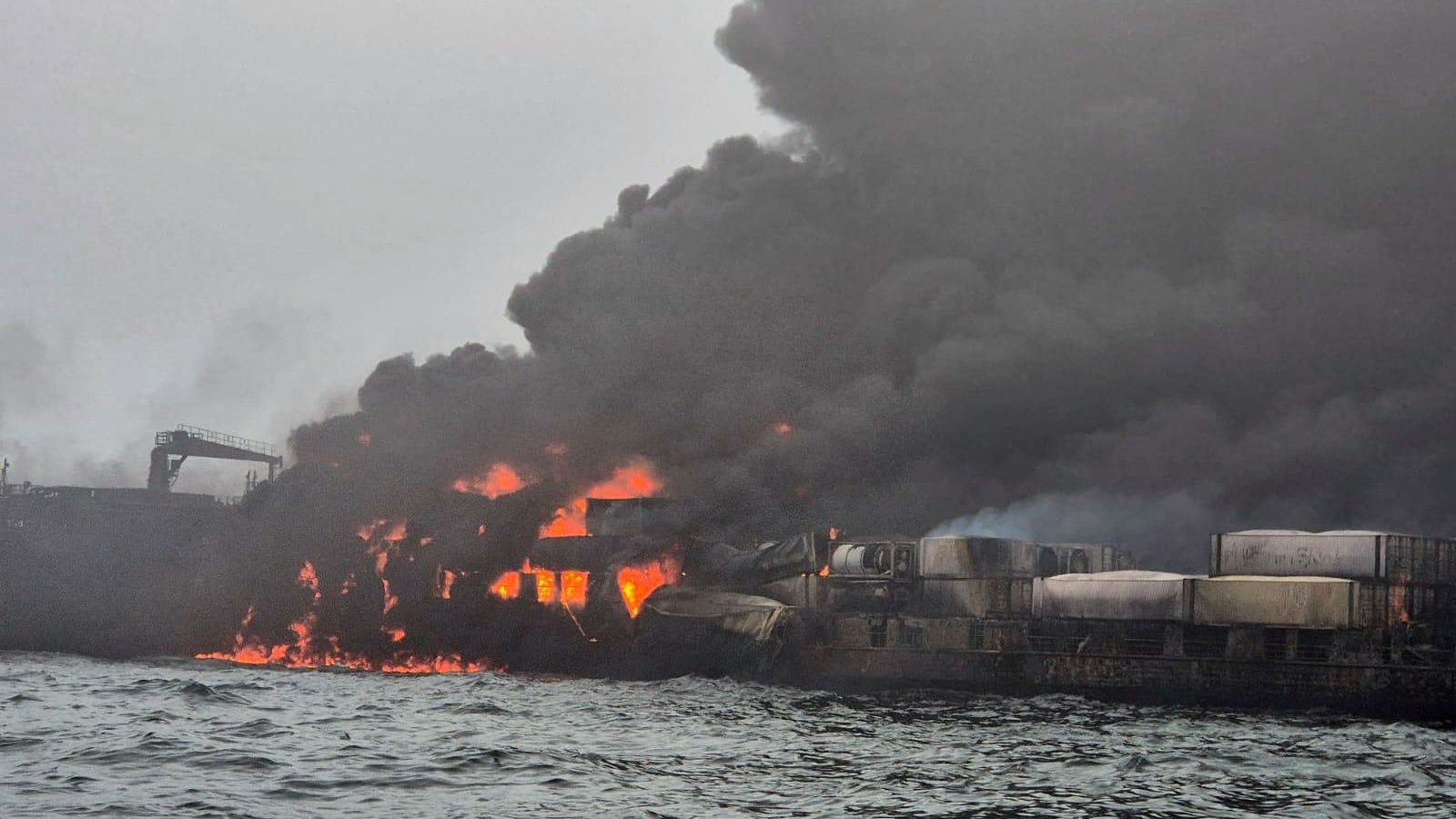
Source: Sky News
A dramatic maritime collision occurred in the North Sea off the coast of eastern England on Monday, as a U.S.-flagged tanker carrying jet fuel was struck by a cargo ship, leading to multiple explosions and fires aboard both vessels.
Collision and Immediate Aftermath
The incident, which occurred around 9:48 a.m. local time (5:48 a.m. EDT), involved the MV Stena Immaculate, operated by Crowley Maritime, and the Portugal-flagged container ship Solong. According to reports, the Stena Immaculate was anchored off the coast of Hull, approximately 155 miles north of London, when it was hit. The tanker’s cargo tank ruptured, leaking jet fuel and igniting a fire.
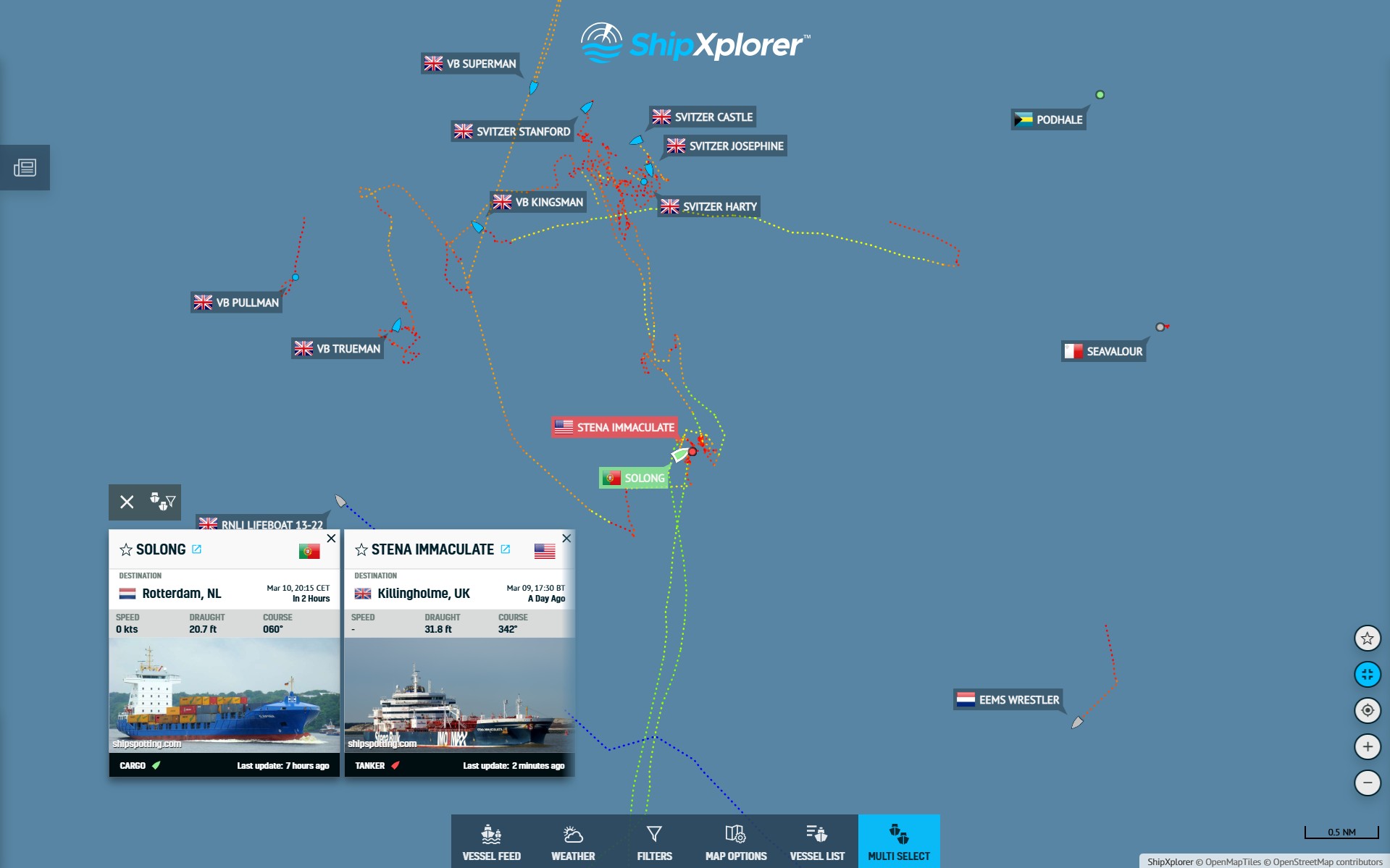
SOLONG & STENA IMMACULATE tracked via ShipXplorer.com
Following the explosions, the Stena Immaculate crew abandoned the ship. Crowley Maritime confirmed, “All Crowley mariners are safe and fully accounted for.” The company works with authorities to contain the fire and secure the vessel.
Rescue and Casualties
At the time of the collision, 37 crew members were aboard the two ships. According to local lawmaker Graham Stuart, one person was hospitalized, while the remaining 36 mariners were reported safe. Martyn Boyers, chief executive of the Port of Grimsby East, noted that rescue efforts were swift, with 13 casualties arriving on the Windcat 33 high-speed vessel and another 19 brought in on a harbor pilot boat.
“It’s too far out for us to see—about 10 miles—but we have seen the vessels bringing them in,” Boyers said. “Luckily there was a crew transfer vessel out there already. Since then, there has been a flotilla of ambulances to pick up anyone they can find.”
Investigation and Environmental Concerns
The U.K.’s Marine Accident Investigation Branch has launched an inquiry into the incident. Meanwhile, the British Maritime and Coastguard Agency deployed lifeboats, a rescue helicopter, and a Coast Guard plane to the scene, supported by firefighting-capable vessels.
The Stena Immaculate was en route from Agio Theodoroi, Greece, to Killingholme, U.K., while the Solong traveled from Grangemouth, Scotland, to Rotterdam, Netherlands.
Concerns over potential environmental damage have been raised, given that the collision occurred in a busy fishing ground near significant seabird colonies. However, scientists suggest the impact might be less severe than a crude oil spill. Mark Hartl, a marine biodiversity expert at Heriot-Watt University, explained, “Most of the jet fuel will evaporate very quickly.”
Similarly, Mark Sephton, an organic geochemistry professor at Imperial College London, noted, “Jet fuel disintegrates more quickly than crude oil, and warmer temperatures also speed biodegradation. In the end, it all depends on the rate of introduction of fuel and the rate of destruction by bacteria. Let’s hope the latter wins out.”
Military Connection and Ongoing Response
A U.S. official confirmed that the Stena Immaculate was carrying cargo supporting the Department of Defense but stated that the collision would not impact operations or combat readiness. Erik Hanell, CEO of Stena Bulk, the ship’s co-owner, confirmed that more than 20 crew members were aboard the vessel at the time of the incident.
BBC News aired video footage showing thick black smoke billowing from both ships, reinforcing fears of prolonged fire suppression efforts. Greenpeace U.K. stated it is still “too early to assess the extent of any environmental damage.”
Authorities continue to monitor the situation as investigations progress and recovery operations are underway.
READ NEXT...
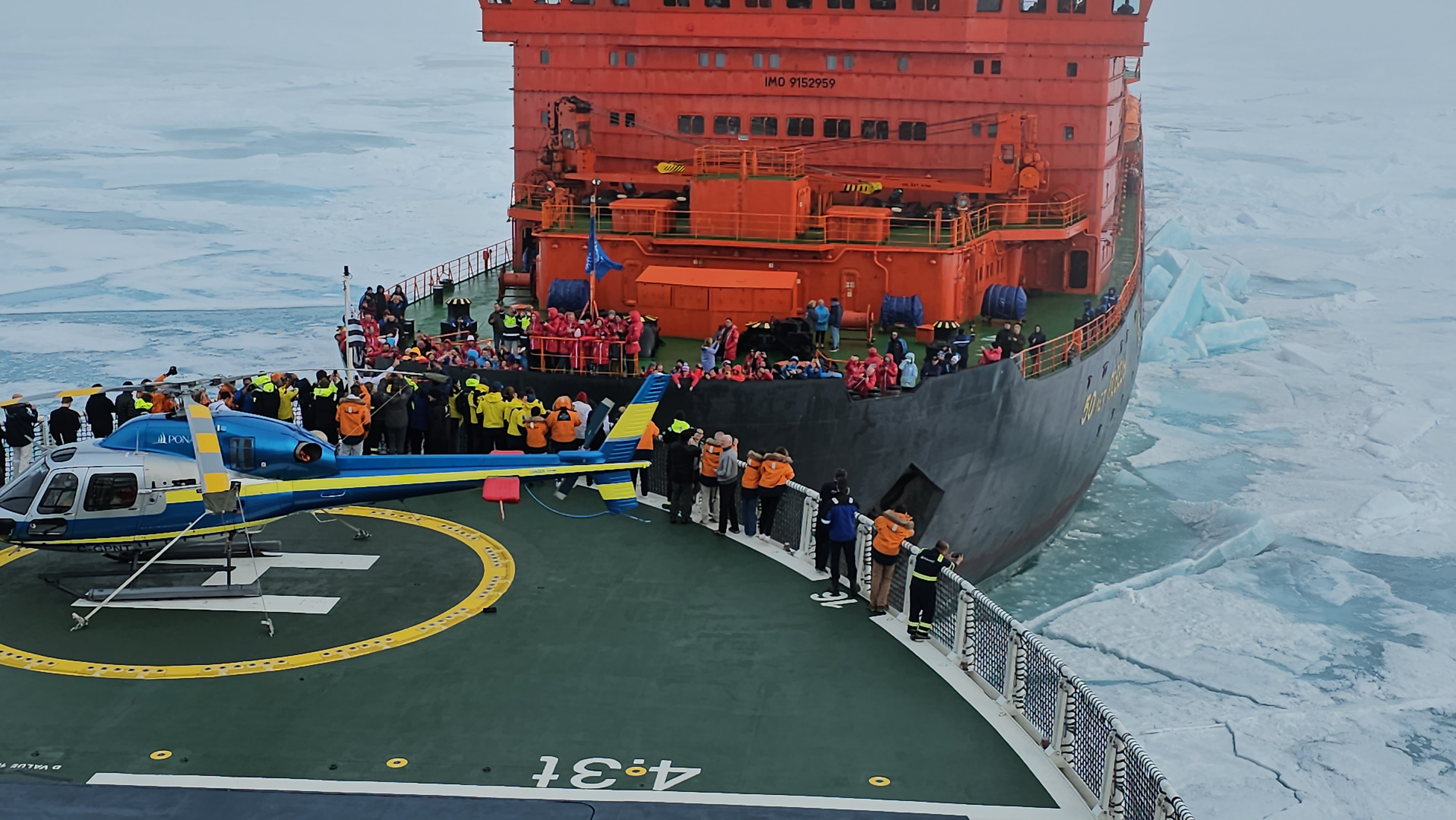
- arctic
- north-pole
- le-commandant-charcot
- north-pole-expedition
- 50-years-of-victory
- russia
- ukraine
- russian-ukrainian-war
- war
- peace
- ship
- blog
2023-07-21 16:37 UTCA Symbolic Encounter: Le Commandant Charcot and Russian Arktika-class nuclear-powered icebreaker 50 Years of Victory Extend a Message of Peace At the North Pole
Today, we have an extraordinary tale to share, one that unfolded amidst the awe-inspiring beauty of the Arctic. Against the backdrop of the Russia-Ukraine war, this encounter took on a profound meaning as the two ships exchanged waves of peace in the far reaches of the North Pole. Read about this symbolic moment on our blog!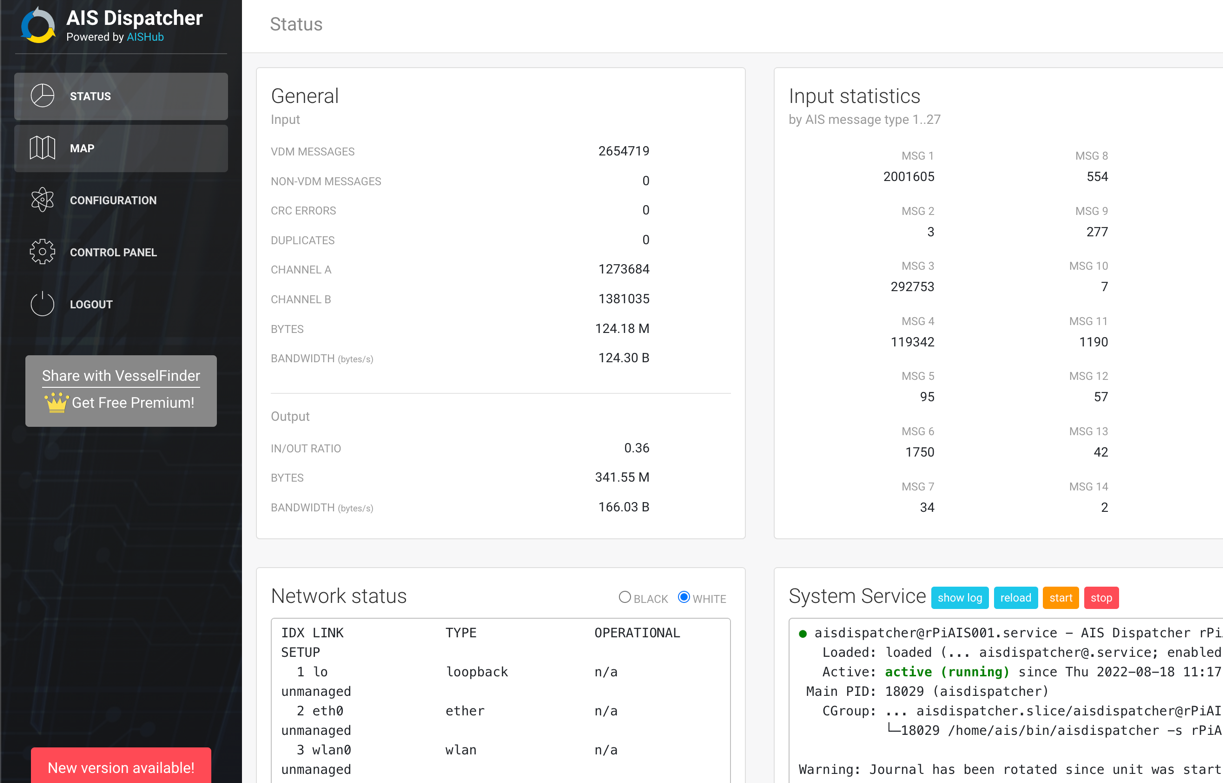
- ais-dispatcher
- ais-hub
- shipxplorer
- ship-tracking
- ais-data
- ais-coverage
- blog
2022-09-04 19:34 UTCHow to share AIS data to ShipXplorer with AIS Dispatcher
Did you know? You can now share AIS data with ShipXplorer? Read our blog to learn more!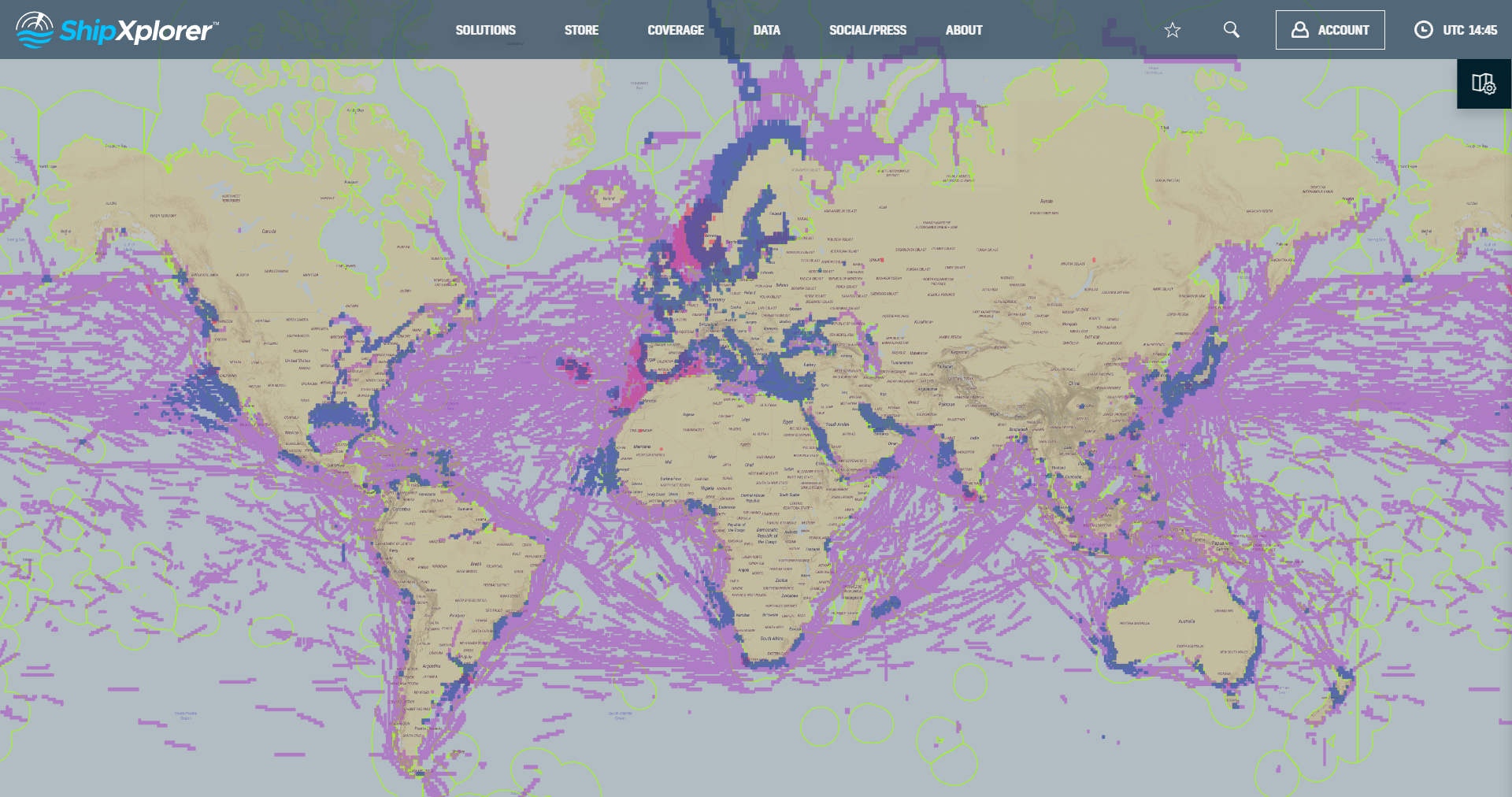
- shipxplorer
- ship-industry
- vessel-tracker
- ship-tracker
- ais
- hardware
- blog
2022-09-04 15:09 UTCSharing AIS data with ShipXplorer
Read our blog post and learn how to share AIS data and the benefits of being a ShipXplorer feeder.
 Facebook
Facebook X
X